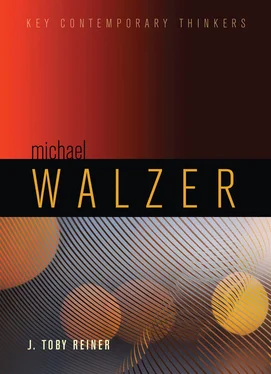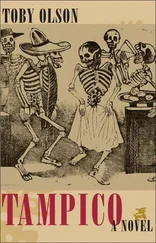The collapse of the USSR and the new waves of immigration to the USA prompted Walzer to turn his attention in the 1990s to questions of cultural diversity and civil society, which also helped him clarify his relationship with the communitarian moment in political theory. This was his major focus in that decade. However, after September 11, 2001, Walzer resumed focus on just wars, and engaged in heated critique of mainstream left responses to the attacks on the World Trade Center (Walzer 2002a, 2003, 2004b). In 2018, he published A Foreign Policy for the Left , which collates and updates many of the essays that this engagement occasioned. He has spent much of the last two decades working on Jewish political theory, co-editing a collaborative project on The Jewish Political Tradition , of which three volumes have been published (Walzer et al. 2000, 2003, 2018; see also Walzer 2012a).
Although Walzer retired as Dissent editor in 2013 and is now emeritus at the Institute, he remains prolific in his mid-80s, and continues to update and restate many of his most important arguments. For example, he used the opportunity of the publication of a fifth edition of Wars in 2015 to add an appendix criticizing much contemporary just-war theory for relying too much on analytic philosophy and not enough on history (Walzer 2015a: 335–46; see also Walzer 2013a). In 2019, at the request of young activists, he republished Political Action , a handbook for movement politics originally written in 1971, as a New York Review book (Walzer 2019).
Approach and Chapter Outline
Walzer’s work is so wide-ranging that my treatment must be selective. Throughout, I try to reconcile breadth and depth, giving a flavor of many of his arguments, while exploring the most important ones in more detail. I seek to give Walzer a sympathetic yet critical hearing and suggest that his position has the resources to rebut many but not all of the lines of criticism that have been advanced against it. As his contributions were written over many decades, often in response to particular political concerns, his oeuvre does not have much shape. I try to systematize where possible so as to draw out the main lines of argument, often focusing on ways in which Walzer has been motivated by a particular vision of social democracy and an interpretive approach. Given that Walzer has published hundreds of works in a variety of venues (see Walzer 2007: 311–23 for a fairly comprehensive list of Walzer’s writing until the past decade), I cannot cover everything. I try to provide citations to help the reader delve more deeply into Walzer’s writing. I combine historical contextualization with exposition and analysis of Walzer’s arguments.
As it is his most famous contribution, I start by considering Walzer’s just-war theory, to which I devote the first two chapters. Chapter 1covers Walzer’s argument for the plausibility of justice in war against both realist and pacifist critiques. I set Walzer’s work in the context of both the centuries-old tradition of theorizing about justice in war and the immediate motivating factor for the work: his antipathy to American involvement in Vietnam. The rest of the chapter covers the first part of Walzer’s theory, which concerns the question of when it is just to resort to war ( jus ad bellum ). Walzer argues that states have rights to sovereignty based on collective self-determination and so that just wars must be ones of national defense. I also cover his account of exemptions to that principle, most notably cases of humanitarian intervention. In Chapter 2, I turn to Walzer’s theory of justified conduct in war ( jus in bello ). I start with an account of its foundation in non-combatant immunity, and Walzer’s attempt to enhance civilian safety in war by reworking the Doctrine of Double Effect, by virtue of which civilian deaths are permissible as unintended byproducts of attacks on legitimate military targets. Next, I turn to Walzer’s controversial arguments that, in “supreme emergencies,” principles of jus in bello may be overridden and his denial of such an exemption for terrorists (Walzer 2015a: 250–68 and 197–207). Finally, I provide an account of Walzer’s debate with recent “revisionist” theorists, who have argued that soldiers must judge the legitimacy of their side’s resort to war and not just of particular military actions. I situate this dispute in disagreements about the right normative foundation for just-war theory, with Walzer’s social-democratic approach emphasizing individual rights not only to life and liberty but also to participation in a common life.
The next several chapters focus on Walzer’s social democracy, considering in turn the theory of complex equality, his political vision for the contemporary USA, and his account of equality in a culturally diverse polity. Chapter 3focuses mostly on the theoretical structure of complex equality. I reconstruct Walzer’s argument as resting on two theses (Reiner 2016; see also Scanlon 2014): first, that goods should be distributed with regard to people’s standing in relation to them (the meaning-dependence thesis); second, that goods are social products with culturally particular meanings (the social-meaning thesis). I use this construction to show how Walzer’s approach provides an important critique of liberal theories of distributive justice such as those of Rawls and Nozick, how it provides a major challenge to the project of constructing a universal theory, and how it can withstand many of the criticisms leveled against it. Chapter 4focuses on the political context in which Walzer developed the theory and so delves into his debt to Dissent and account of the relationship between social democracy, liberalism, and communitarianism. The chapter also provides an account of some of Walzer’s more directly political arguments about justice, notably his critique of the welfare state and defense of industrial democracy, and his involvement with movement politics in the 1960s. At the end of the chapter, I consider some of Walzer’s most important recent statements relating to social democracy. In Chapter 5, I focus on cultural diversity. Walzer’s situated approach meant that he turned to the study of multiculturalism rather earlier than most political theorists (Walzer 1980e). His account is more political than most alternatives, focusing on negotiation between minority groups and the state in which they reside.
In Chapter 6, I focus on topics in international ethics, considering them under the umbrella of Walzer’s critical engagement with the emerging cosmopolitanism of the field on matters such as global distributive justice and justice after war ( jus post bellum ). I also illustrate how Walzer’s resistance to the idea that equality can be meaningful at the global level illuminates his conception of social democracy and the importance of a common life.
Chapter 7relates Walzer’s work on religion, and especially on the Jewish political tradition, to his secular political theory. In doing so, it demonstrates greater continuity in his worldview over the decades than most interlocutors have noticed. This leads us into Chapter 8, which focuses on Walzer’s interpretive method and social criticism. This chapter suggests that a coherent method, which I call critical conventionalism, underlies much of Walzer’s work and makes an important contribution to the field. The seemingly greater particularity of his distributive justice reflects differences in the scope of the subject matter: because most wars are engaged in across communal boundaries, the moral world of war is the product of international interaction to a greater degree than that of domestic politics. In each case, however, Walzer’s appeal is to meanings we have already created prior to theoretical investigation but that are neither natural nor universal. Finally, in concluding, I argue that Walzer’s importance is both in offering a social-democratic alternative to the liberalism that dominates Anglophone political theory and in his situated, interdisciplinary approach. This means that Walzer is not an insightful if untidy analytic political theorist, as he is often read (see for example, Agnafors 2010: 4–6, Den Hartogh 1999), but someone who seeks to extend the methodological resources of analytic political theory, to challenge some of its recurrent assumptions, and to bring it into conversation with other fields of study and with political and public-intellectual debate.
Читать дальше












